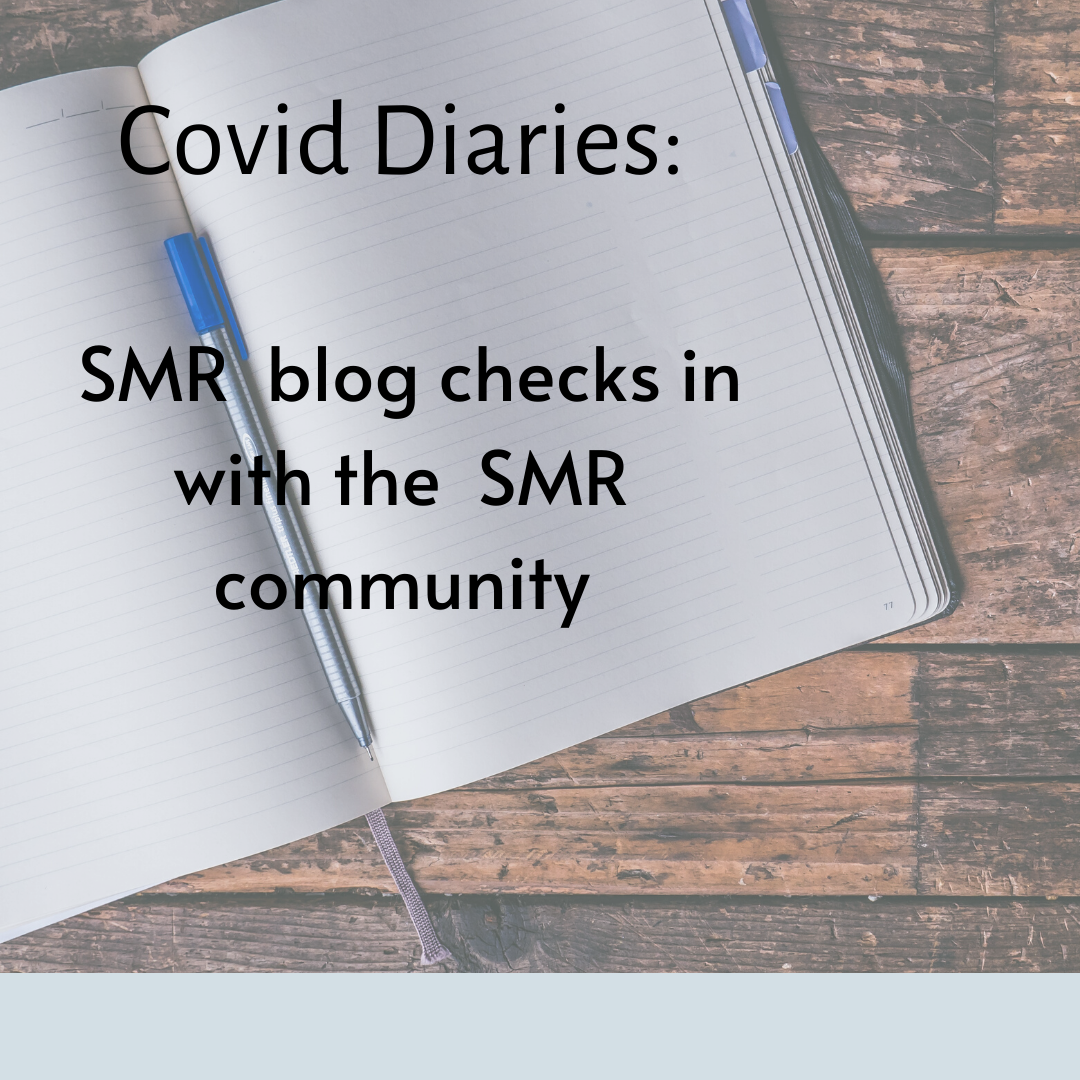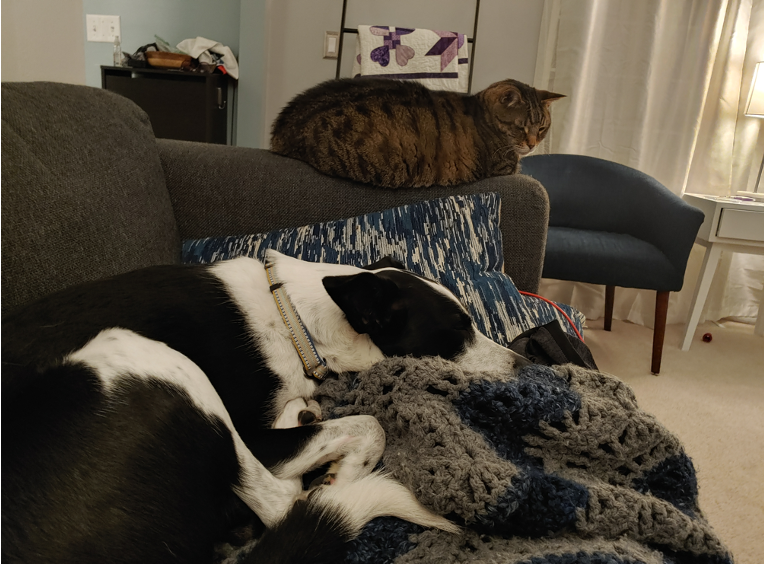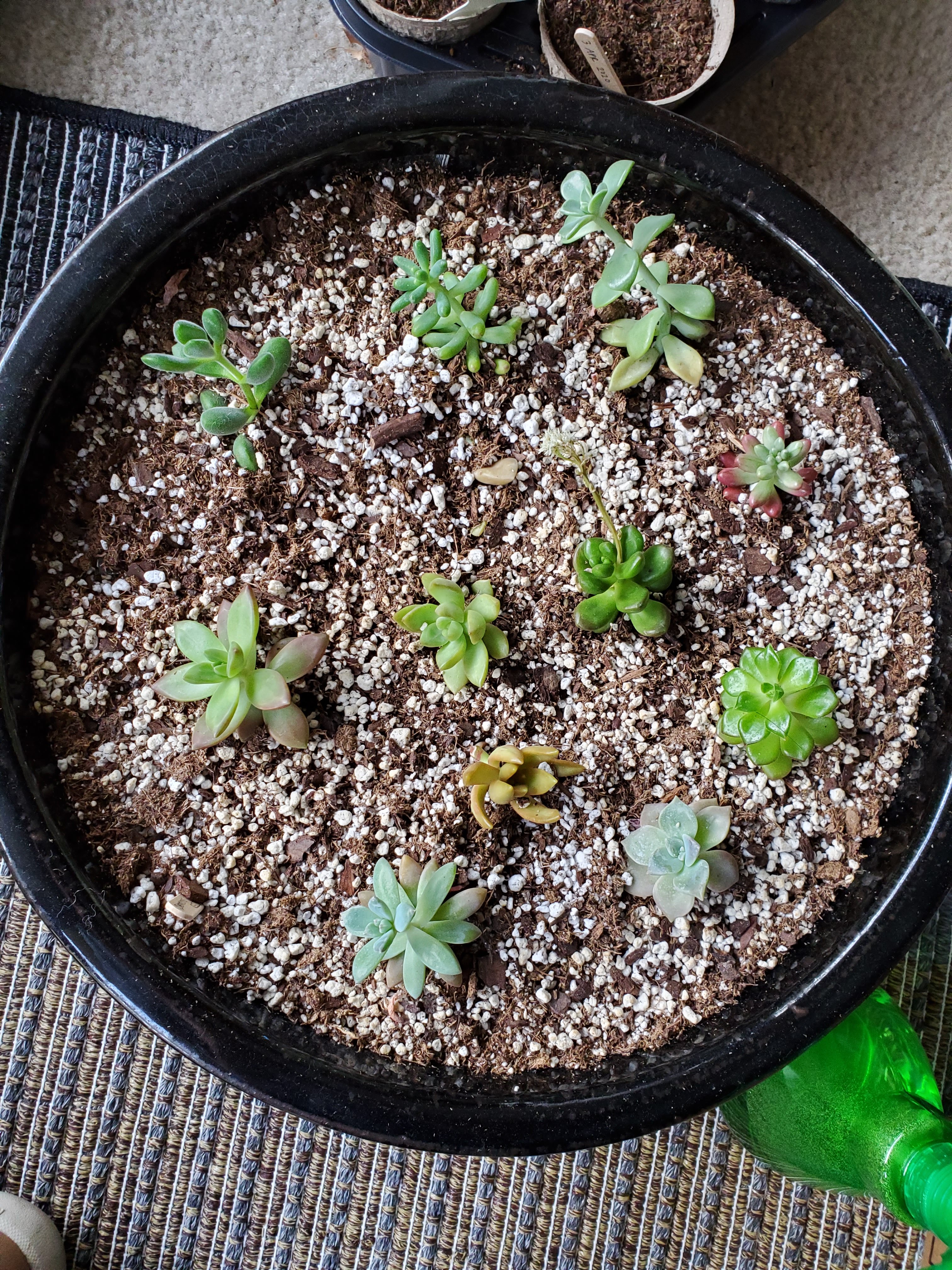
The lockdown incurred by the recent pandemic has forced graduate students across the country to find new ways to continue to learn, teach, research, and generally stay sane. The SMR blog team recently checked in to see how our constituency is dealing with this unprecedented situation.
It was encouraging to hear some notes of positivity in how SMR members are coping with the situation, for instance, Piper Foulon (pre-candidate, musicology) writes: "I am really grateful for the way our community is trying so hard to be accommodating and good to one another. I’ve spoken to neighbors I’ve never met before (from a safe distance!) and I’ve been generally really heartened by the effort that everyone is making.”
“I am really grateful for the way our community is trying so hard to be accommodating and good to one another. I’ve spoken to neighbors I’ve never met before (from a safe distance!) and I’ve been generally really heartened by the effort that everyone is making.”
Alyssa Wells (candidate, musicology) finds that: “Being on a writing and research fellowship has lessened the impact of COVID-19 on my daily life. Unlike my colleagues who are teaching, I have been socially isolated for the past two years. It's only in the recent days of isolation (I'm on day 20 now) that it has begun to seem odd.”
But, these past few weeks have posed other strains, both mentally and emotionally, and in ways that strike a particular chord with the work that we do. As Alyssa further adds, "beyond the general anxiety and fear that comes with this global pandemic, I have recently been struck by an uncanny feeling. I've slowly realized that social isolation is oddly familiar for one specific reason: it's like doing research abroad.”
“Beyond the general anxiety and fear that comes with this global pandemic, I have recently been struck by an uncanny feeling. I've slowly realized that social isolation is oddly familiar for one specific reason: it's like doing research abroad.”
Alyssa continues, “this realization may seem like a weird one to most, but for those of you who have spent significant time living in a foreign place, you know what I'm talking about. During every research trip abroad, I'd be on a shoestring budget (#gradschool) so I hardly ever went out to bars or restaurants. I would spend a lot of time walking around my neighborhood, just enjoying being outdoors...[…] The biggest difference is that the loneliness that had been previously filled by Döner Kebab has been replaced by a dog, cat, and husband.”

Though the status quo has been disrupted, learning at the University of Michigan continues. Classes need to be taught, papers revised, and research conducted. This requires that students find new ways to create structure and pursue some consistency in their day-to-day lives. And as Dorian Mueller (candidate, Music Theory) acknowledges, some things are inevitable:
“Grading forever...but also, I try to give my day some structure; I still wake up (generally) at the same time each day and I've also kept the same lecture times for the classes I teach, as a means for both my students (and perhaps, more so) myself to maintain some semblance of regularity." Dorian continues:
"I've also accepted that it's okay to not always feel the pressure to be productive—these are not normal times, and so it wouldn't make sense to have normal expectations of ourselves; in fact, I think we should all do ourselves a kindness and lower the bar just a bit.”
"I've also accepted that it's okay to not always feel the pressure to be productive—these are not normal times, and so it wouldn't make sense to have normal expectations of ourselves; in fact, I think we should all do ourselves a kindness and lower the bar just a bit.”
Sylvie Tran (pre-candidate, Music Theory) has also endeavored to maintain a balance between a productive schedule and allowing herself some clemency in these strange times, writing “I've lowered my expectations of myself, take frequent but scheduled (i.e. finite) breaks, and try to maintain strict work hours (which, thankfully, I am able to do during this time).” Everyone has their favorite strategies for staying focused, and they are lately being put to the test. “I have not been as productive as I would like, but I have slowly found my groove. I try to stick to a schedule that I plan out at the beginning of the day. My to-do lists have never been more regimented,” says Piper.
Not only has the pandemic put a strain on our academic/scholarly lives, the lockdown has also thoroughly changed the ways that we socialize and spend our (limited) free time. SMR members have been very inventive in finding ways to connect with the people closest to them and to continue maintain sanity in the midst of a pandemic. “I make sure that I find time during the day to step outside—even if just for a few laps around the block. Sunlight, water, and lots of podcasts (kind of like a plant?). Also, having my cats around to prevent me from working too many hours has kept me both entertained and grounded. Virtual games and Skype/Zoom calls with friends/family have also been helpful. Oh, and baby Yoda memes...definitely baby Yoda memes,” writes Dorian.

Alyssa has also found ways of coping with the craziness: “When not working on the current project at hand, I would binge watch my favorite shows, workout, or play video games to cope with the ever-growing void left by a lack of socialization. Every one of these aspects of my research life has a strong parallel in my COVID-19 life.”
Some members of SMR have accessed new heights of dorkiness during the current crisis: “My family and I have been virtually playing D&D over Skype. It was something we started doing when I was living in Russia, so it has always been something we had to do virtually, and so being forced to do so now doesn't feel as strange or scary. It's just some mindless fun that we can have with our family, and that has been a huge comfort to me. It is also very funny to watch my absurdly tall boyfriend play a hobbit,” Piper (dwarf, year 2 paladin). Others still have found tranquillity in their safe homes:
“I think I've embraced some of the comforts of working from home. The large windows, the kitchen within steps of my work area (for those frequent and speedy tea refills), and not needing to go to campus when it's snowing are all things I could get used to," writes Sylvie.
“I think I've embraced some of the comforts of working from home. The large windows, the kitchen within steps of my work area (for those frequent and speedy tea refills), and not needing to go to campus when it's snowing are all things I could get used to.”
Students have even used the extra commute time to rediscover old hobbies. Sylvie says that “Aside from being able to listen to music during the workday without headphones now (game-changer!), I don't think I've taken on any new activities as much as devoted more time to old ones: specifically, [almost-]daily lunchtime runs, playing the flute, tending to my succulent propagation project (pictured), and various cooking/baking projects.”

Piper says that she “has been re-learning how to sew. I am trying to get good enough to pattern and sew my own bridesmaid’s dress for a wedding I am in next year.”
Others have advanced their healthy basic habits in these challenging times: “Does incessant hand-washing count as a hobby? I actually haven't taken on any new hobbies—I've mainly been focusing on getting through the semester in one piece—although I would really like to. Any suggestions?” asked Dorian.
Though the end of this feels very much out of reach, it is lovely to imagine what it might be like when it is over. Dorian says that she will “probably go outside and just sit in the sun, and probably catch up on all of the hikes I've been dying to go on.”
Like so many things in a graduate program, this lockdown is testing us. It is stressful and uncertain. It requires no small amount of bravery to figure out how to navigate such an obstacle and it requires a huge amount of compassion: for ourselves, for our peers, and for our students. But also like a graduate program, we will get through it and be more resilient for it. We at the SMR blog hope you are all doing well, staying healthy, and are finding ways to laugh in all of this. Take care!
—SMR blog team
Recent Posts
SMR hosts Research Showcase – September 29, 2023
SMR Welcome BBQ at County Farm Park – September 22, 2023
Anna Rose Nelson defends dissertation – August 04, 2023
Dorian Mueller defends dissertation – July 28, 2023
SMR Members Present at IASPM 2023 – July 17, 2023
SMR Winter General Assembly – May 04, 2023
SMR Hosts End-of-Year BBQ – April 28, 2023
Sinaboro's Field Trip to Chicago over Spring Break – March 10, 2023
 Society for Music Research
Society for Music Research